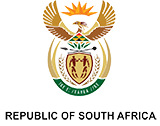Making and buying local
Government is taking important steps in reducing South Africa’s dependence on imported goods. Local manufacturing and procurement grow the economy, create jobs, broaden markets and create numerous opportunities for business expansion.
As part of our social compact, all social partners that participated in the development of the Economic Reconstruction and Recovery Plan have agreed to work together to reduce our reliance on imports by 20% over the next five years.
National Economic Development and Labour Council
The National Economic Development and Labour Council (Nedlac) brings together government, labour, business and community organisations to work on economic, labour and development issues and related challenges facing the country.
The Nedlac Localisation Working Group agreed to localise up to R200 billion of additional production over a five-year period. They have identified 42 products – ranging from edible oils to furniture, fruit concentrates, personal protective equipment, steel products and green economy inputs – that can be sourced locally. The working group has nominated 30 CEO ‘champions’ to drive localisation across key value-chains.
Master plans
Master plans aim to increase localisation. Business, government and labour are working together to increase production and create more jobs in the sector. We have finalised master plans in eight industries: clothing, poultry, sugar, automotive, furniture, steel, tourism and forestry – resulting in total investment commitments of R82.5 billion and the creation of 6 500 jobs.
- Poultry
- Automotive
- Sugar
- Retail-Clothing, Textile, Footwear and Leather
- Steel and Metal Fabrication
- Furniture
- Commercial Forestry
The Tourism Master Plan provides a road map for full recovery of tourism in the country. It proposes seven intervention strategies to ensure the tourism sector once again becomes the centre of job creation and entrepreneurship. The tourism industry is a vital contributor to the economy and had already supported 725 000 jobs before the COVID-19 pandemic.
Master plans in the sugar and poultry industries are already contributing significantly to increased investment, improved production and transformation. Government is also working to finalise master plans in the digital economy, agriculture and agro-processing, aerospace and defence, renewable energy, the health economy, and the oceans economy.
The Cannabis master plan aims to increase the quality and variety of cannabis being produced for local and international markets. We are moving to create the enabling conditions for the sector to grow.
The Department of Agriculture Land Reform and Rural Development and the Department of Health will address existing conditions for the cultivation of hemp and cannabis to allow outdoor cultivation and collection of harvests from traditional farmers.
Government will also be implementing changes to the policy and regulatory framework drive investment and jobs in this sector.
Cannabis Master Plan
R28 billion
Projected
130 000+
Jobs created
SMME-focused Localisation Policy Framework and Implementation Programme
We have strengthened partnerships with the private sector to list small businesses as suppliers and to place SMME products on the shelves of retailers. A key focus is promoting small businesses and cooperatives to gain access to high-value public procurement opportunities.
Since inception, 289 products manufactured by small businesses have been successfully linked to private sector supply chains.

